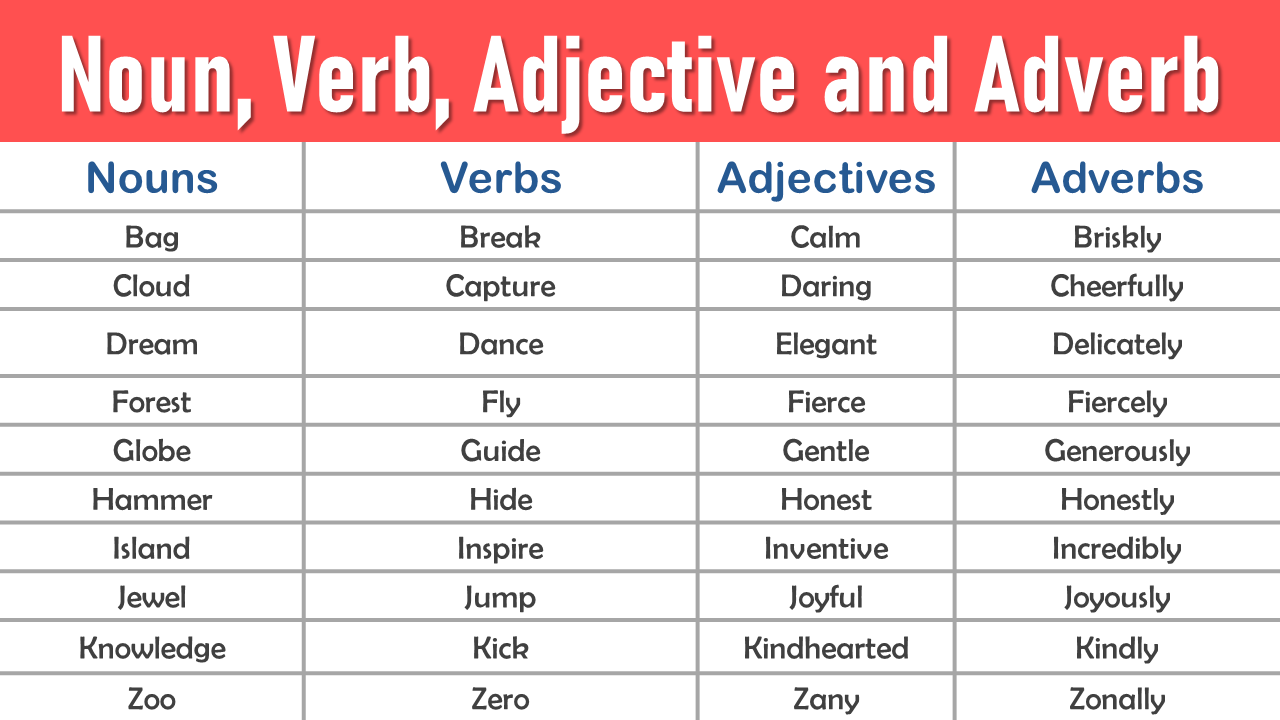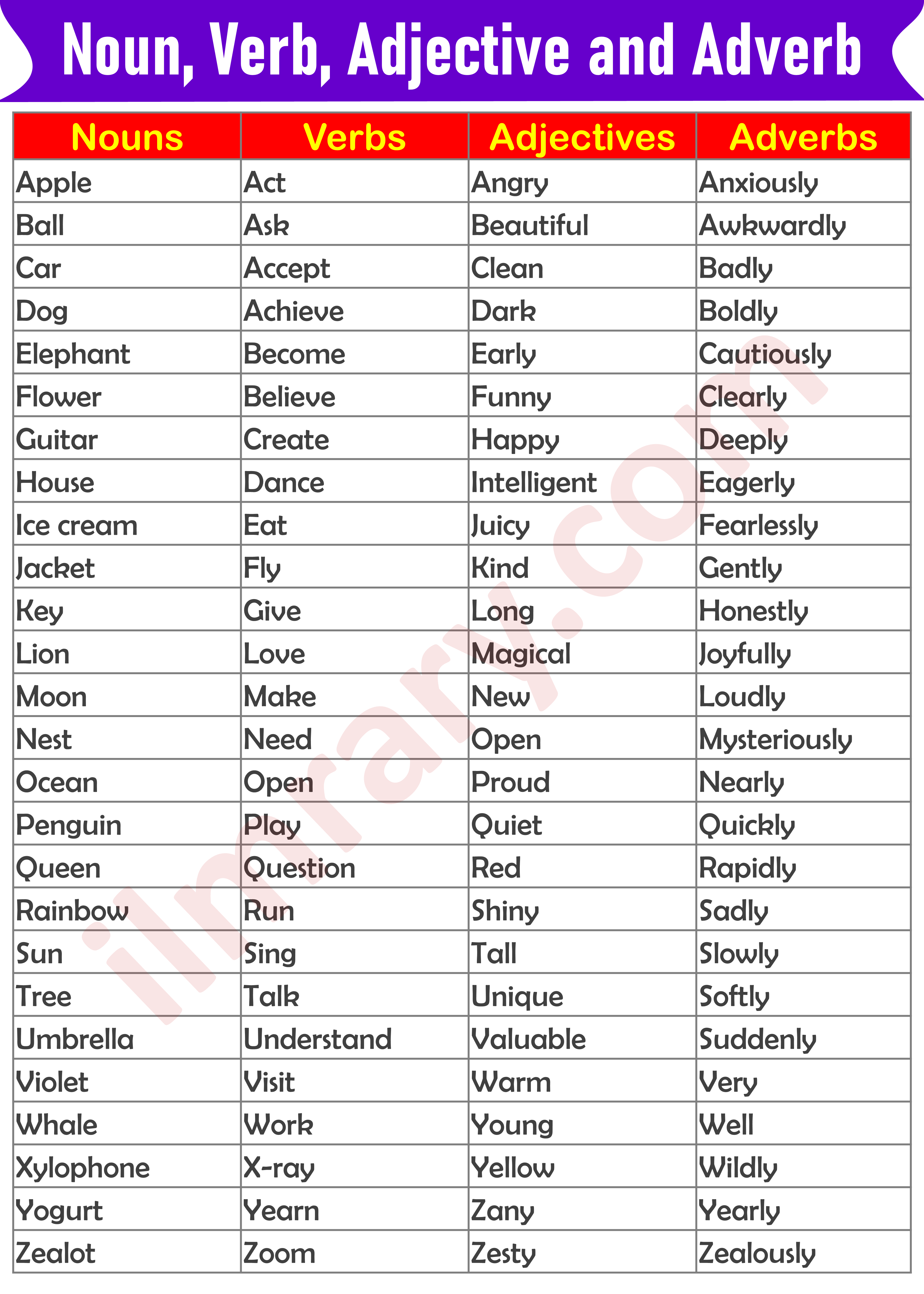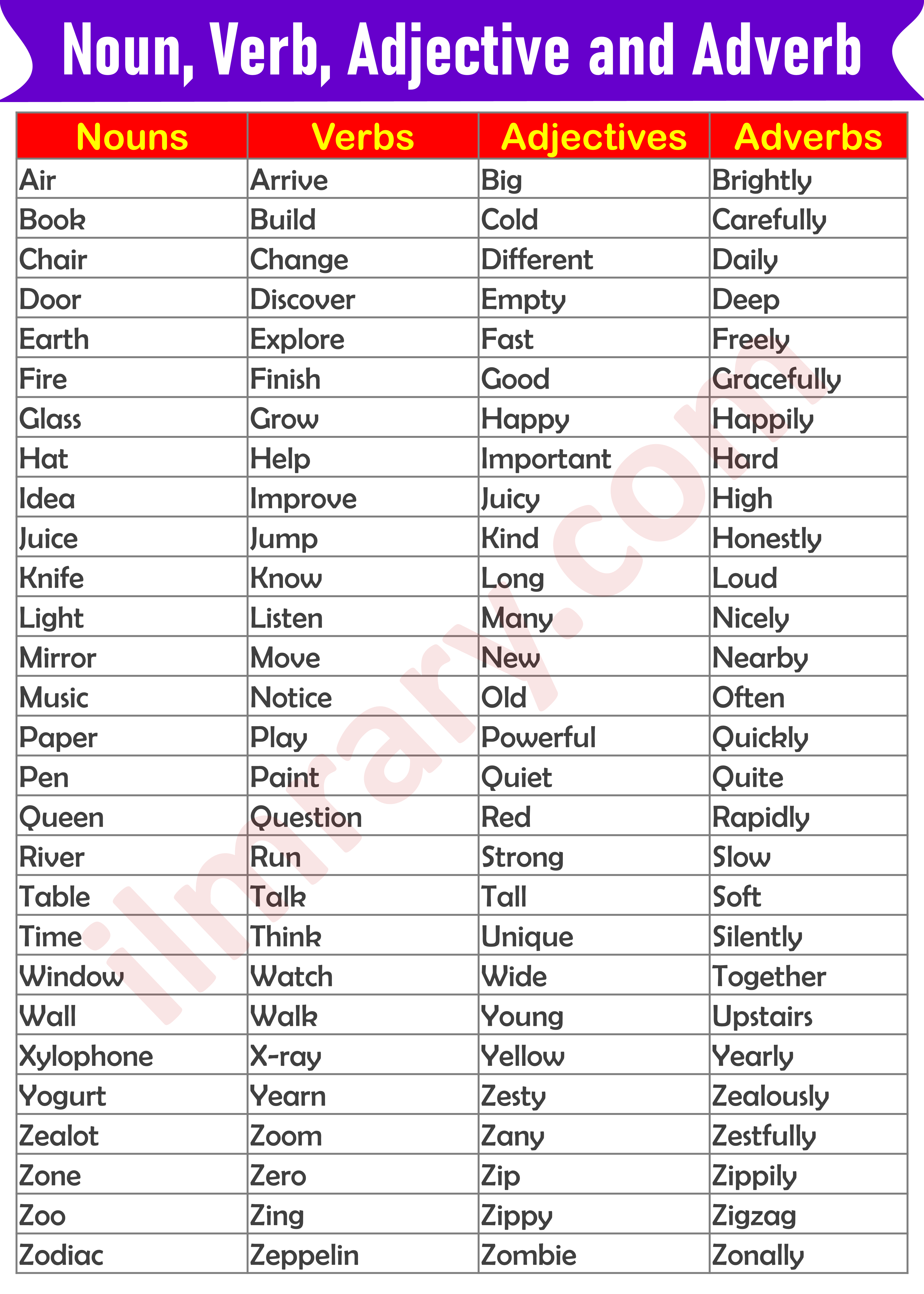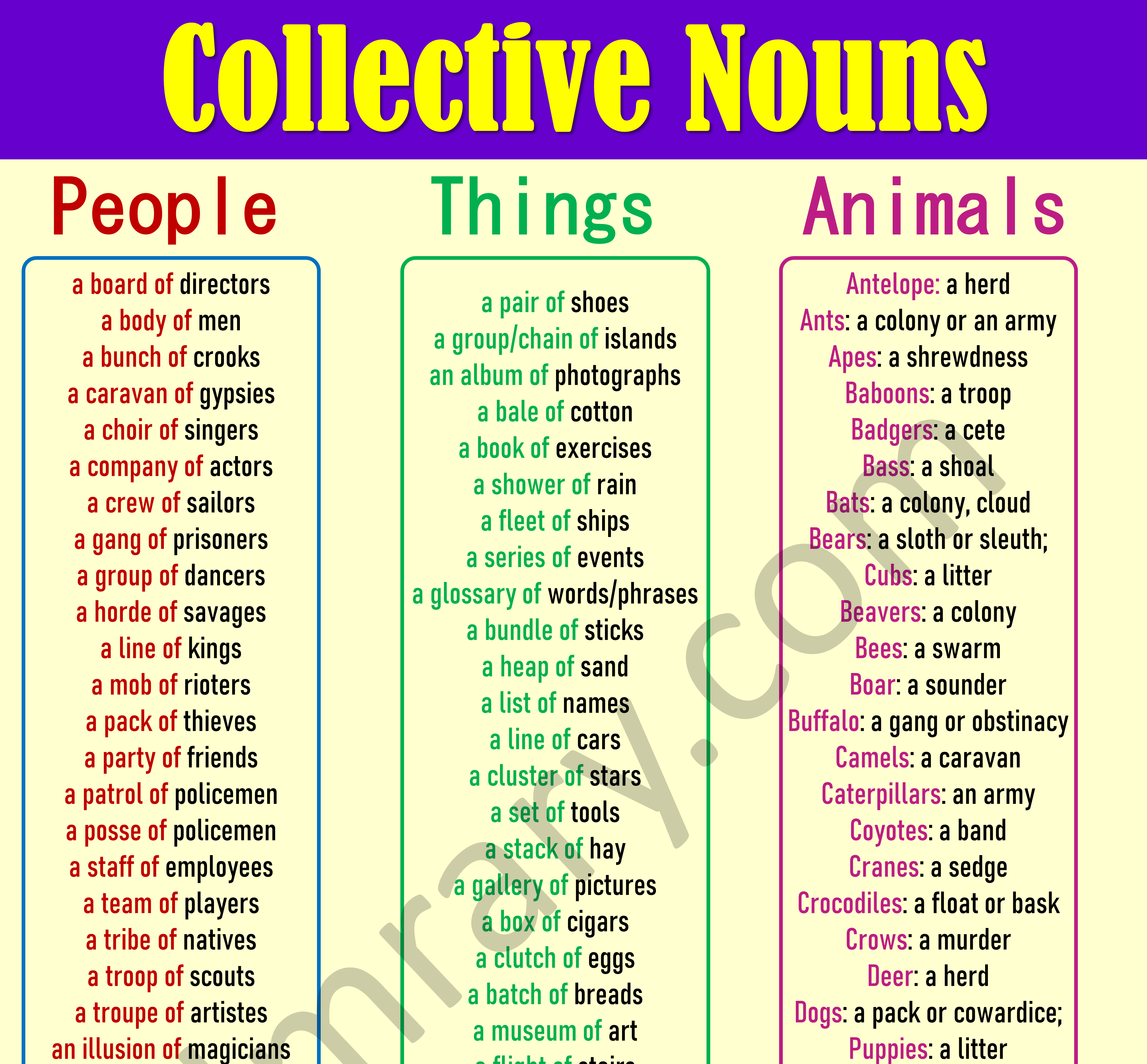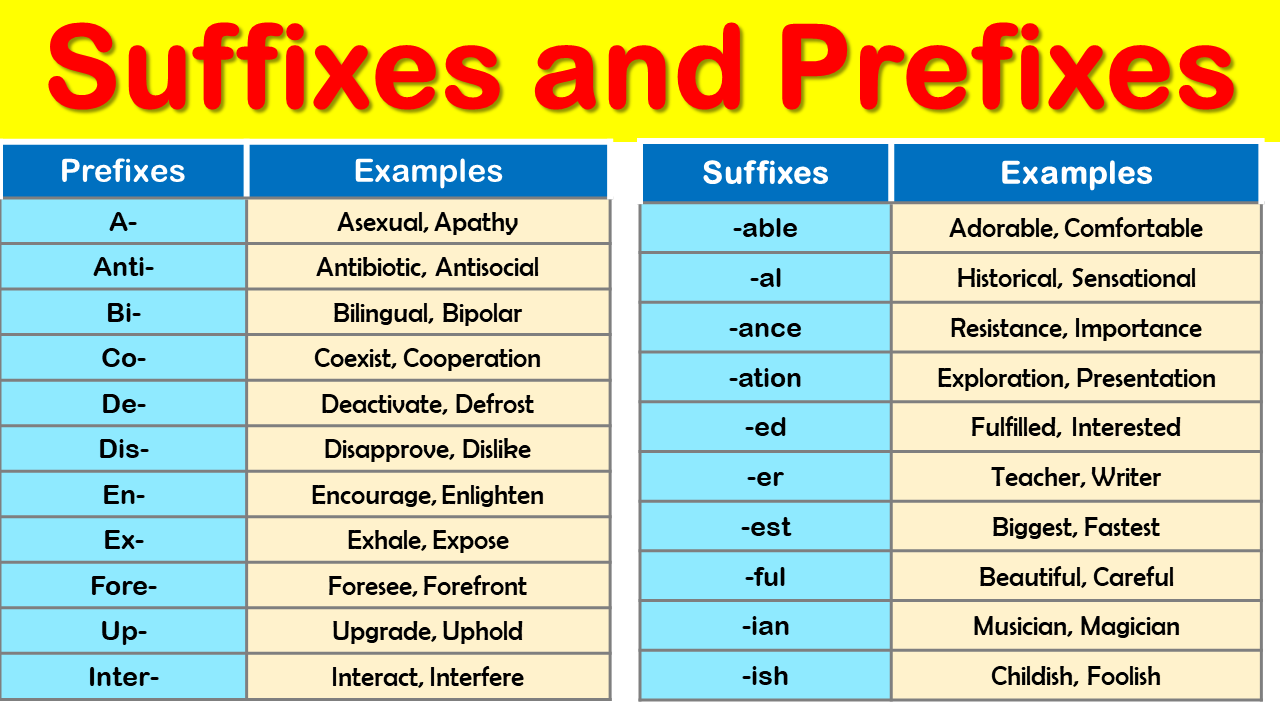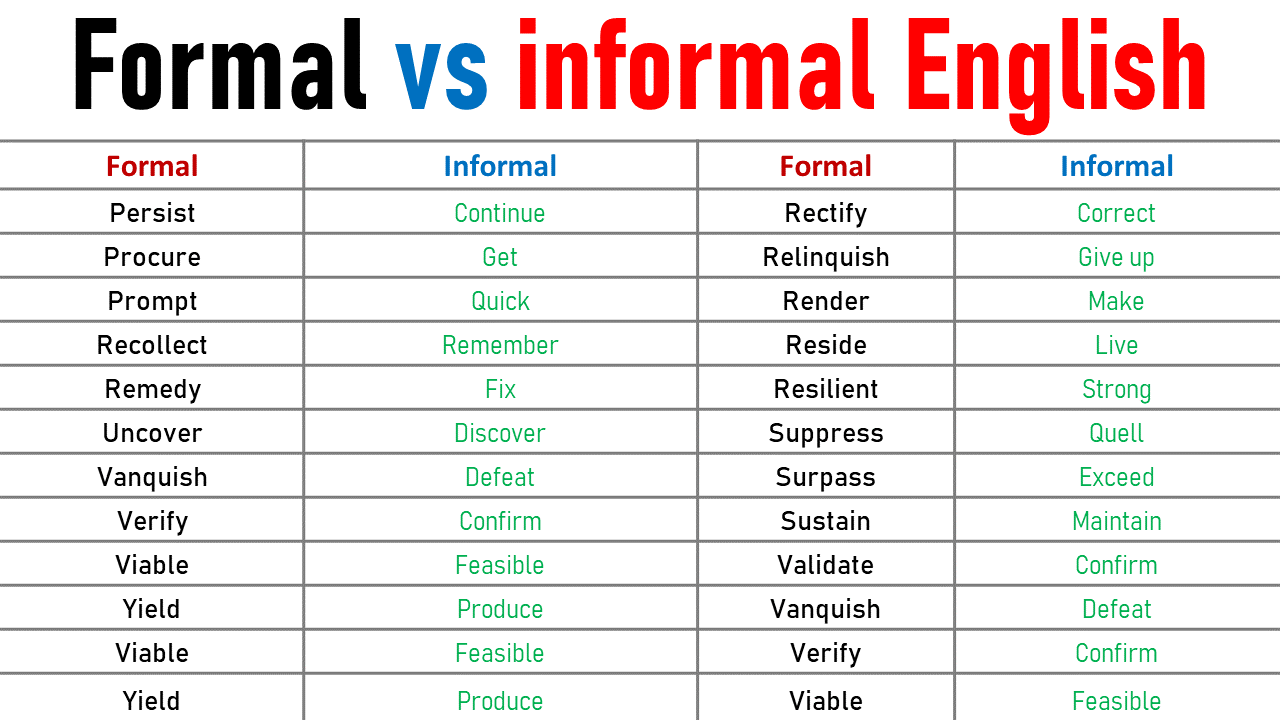In learning English, understanding the different parts of speech is essential. Words in the English language can be transformed from one part of speech to another, such as turning a noun into a verb or an adjective into an adverb. This ability to change a word’s form allows you to use it in various contexts, making your language more versatile and engaging.
In this article, we will cover the basics of nouns, verbs, adjectives, and adverbs, and explore how words can shift from one form to another, using a comprehensive list from A to Z.
Contents
What Are Nouns, Verbs, Adjectives, and Adverbs?
To understand how words transform, let’s first review the definitions of nouns, verbs, adjectives, and adverbs:
- Nouns are words that name people, places, things, or ideas.
Examples: apple, dog, city.
- Verbs are words that describe actions or states of being.
Examples: run, eat, become.
- Adjectives are words that describe or modify nouns. They tell you more about a noun.
Examples: happy, big, smart.
- Adverbs are words that describe or modify verbs, adjectives, or other adverbs. They tell you how, when, where, or to what extent something is done.
Examples: quickly, very, happily.
Transforming Words: Nouns, Verbs, Adjectives, and Adverbs
Here’s how words can change from one part of speech to another. For example, a noun can become a verb, an adjective can become an adverb, and so on. Below is a list of words that showcase these transformations:
Noun, Verb, Adjective, and Adverb List (A to Z)
| Nouns | Verbs | Adjectives | Adverbs |
|---|---|---|---|
| Apple | Act | Angry | Anxiously |
| Ball | Ask | Beautiful | Awkwardly |
| Car | Accept | Clean | Badly |
| Dog | Achieve | Dark | Boldly |
| Elephant | Become | Early | Cautiously |
| Flower | Believe | Funny | Clearly |
| Guitar | Create | Happy | Deeply |
| House | Dance | Intelligent | Eagerly |
| Ice cream | Eat | Juicy | Fearlessly |
| Jacket | Fly | Kind | Gently |
| Key | Give | Long | Honestly |
| Lion | Love | Magical | Joyfully |
| Moon | Make | New | Loudly |
| Nest | Need | Open | Mysteriously |
| Ocean | Open | Proud | Nearly |
| Penguin | Play | Quiet | Quickly |
| Queen | Question | Red | Rapidly |
| Rainbow | Run | Shiny | Sadly |
| Sun | Sing | Tall | Slowly |
| Tree | Talk | Unique | Softly |
| Umbrella | Understand | Valuable | Suddenly |
| Violet | Visit | Warm | Very |
| Whale | Work | Young | Well |
| Xylophone | X-ray | Yellow | Wildly |
| Yogurt | Yearn | Zany | Yearly |
| Zealot | Zoom | Zesty | Zealously |
Examples of Word Transformations
Let’s see a few examples of how nouns, verbs, adjectives, and adverbs can transform:
- Noun to Verb:
- Noun: belief
- Verb: believe
- Adjective: believable
- Adverb: believably
Explanation: The noun belief turns into the verb believe. The adjective form is believable, and the adverb form is believably.
- Noun to Verb:
- Noun: flower
- Verb: flower (meaning to flourish or bloom)
- Adjective: flowery
- Adverb: flowery
Explanation: Flower as a noun refers to the bloom of a plant, but as a verb, it can mean to bloom. As an adjective, flowery means resembling a flower, and as an adverb, flowery describes something that blooms or flourishes.
Noun, Verb, Adjective, and Adverb in English
| Nouns | Verbs | Adjectives | Adverbs |
|---|---|---|---|
| Air | Arrive | Big | Brightly |
| Book | Build | Cold | Carefully |
| Chair | Change | Different | Daily |
| Door | Discover | Empty | Deep |
| Earth | Explore | Fast | Freely |
| Fire | Finish | Good | Gracefully |
| Glass | Grow | Happy | Happily |
| Hat | Help | Important | Hard |
| Idea | Improve | Juicy | High |
| Juice | Jump | Kind | Honestly |
| Knife | Know | Long | Loud |
| Light | Listen | Many | Nicely |
| Mirror | Move | New | Nearby |
| Music | Notice | Old | Often |
| Paper | Play | Powerful | Quickly |
| Pen | Paint | Quiet | Quite |
| Queen | Question | Red | Rapidly |
| River | Run | Strong | Slow |
| Table | Talk | Tall | Soft |
| Time | Think | Unique | Silently |
| Window | Watch | Wide | Together |
| Wall | Walk | Young | Upstairs |
| Xylophone | X-ray | Yellow | Yearly |
| Yogurt | Yearn | Zesty | Zealously |
| Zealot | Zoom | Zany | Zestfully |
| Zone | Zero | Zip | Zippily |
| Zoo | Zing | Zippy | Zigzag |
| Zodiac | Zeppelin | Zombie | Zonally |
List of Noun, Verb, Adjective, and Adverb
| Nouns | Verbs | Adjectives | Adverbs |
|---|---|---|---|
| Bag | Break | Calm | Briskly |
| Cloud | Capture | Daring | Cheerfully |
| Dream | Dance | Elegant | Delicately |
| Forest | Fly | Fierce | Fiercely |
| Globe | Guide | Gentle | Generously |
| Hammer | Hide | Honest | Honestly |
| Island | Inspire | Inventive | Incredibly |
| Jewel | Jump | Joyful | Joyously |
| Knowledge | Kick | Kindhearted | Kindly |
| Lantern | Laugh | Lively | Lovingly |
| Mountain | Manage | Mighty | Mysteriously |
| Notebook | Navigate | Noble | Neatly |
| Oceans | Observe | Optimistic | Outdoors |
| Pillow | Paint | Polite | Patiently |
| River | Read | Radiant | Rapidly |
| Star | Swim | Strong | Silently |
| Treasure | Teach | Tender | Tenderly |
| Universe | Unite | Upbeat | Upward |
| Voice | Visit | Vivid | Very |
| Wisdom | Wander | Warm | Well |
| Xylophone | X-ray | Xenophobic | Xerographically |
| Yacht | Yearn | Young | Yesterday |
| Zebra | Zoom | Zesty | Zealously |
| Zone | Zigzag | Zealous | Zippily |
| Zoo | Zero | Zany | Zonally |
FAQs About Nouns, Verbs, Adjectives, and Adverbs
1. What is the difference between a noun and a verb?
- A noun is a word that names a person, place, thing, or idea, like book or city. A verb is a word that describes an action or a state of being, like run or is.
2. Can an adjective become an adverb?
- Yes, many adjectives can change into adverbs by adding -ly to the end. For example, quick (adjective) becomes quickly (adverb).
3. What are some examples of words that change from nouns to verbs?
- Examples of nouns that turn into verbs include run (as a noun, it’s an activity; as a verb, it’s an action) and book (as a noun, it’s a reading item; as a verb, it means to reserve).
4. How can I practice transforming words from nouns to verbs or adjectives to adverbs?
- You can practice by looking up nouns, verbs, adjectives, and adverbs in a dictionary. Then, try changing them into different forms. Write sentences using the different forms to see how they change the meaning.
5. Why is it important to know how to change words between different forms?
- Knowing how to change words between nouns, verbs, adjectives, and adverbs makes your speech and writing more flexible. It allows you to express ideas more clearly and creatively.
Conclusion
Understanding how words transform between nouns, verbs, adjectives, and adverbs is an important skill for English learners. By practicing these transformations, you can expand your vocabulary, enhance your language skills, and make your communication more effective. Keep practicing, and soon you will feel more confident in using these words in different contexts.
You May Also Like


